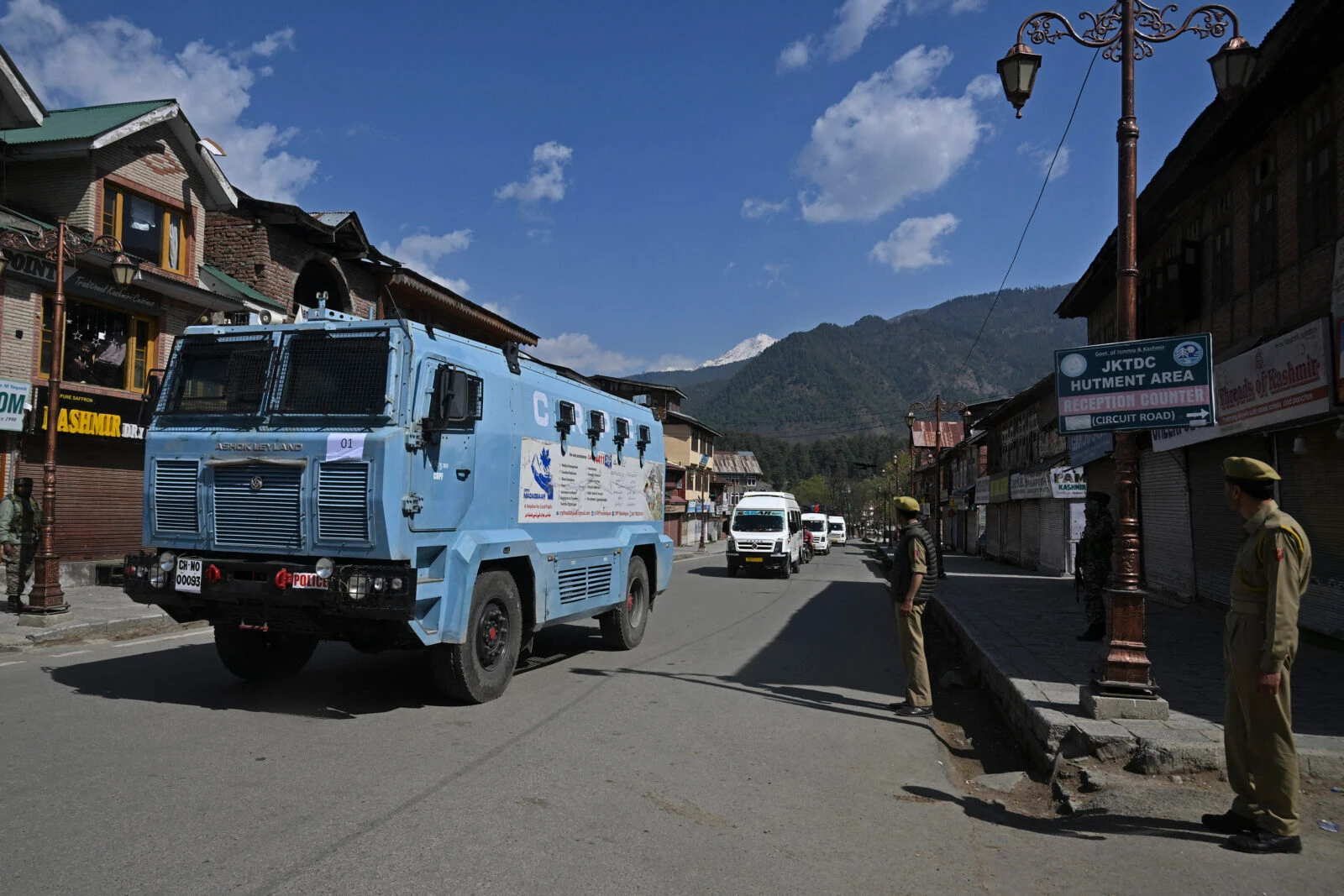India suspends Indus Water Treaty, closes Wagah Border with Pakistan after Kashmir attack
 Indian soldiers inspect the site in the aftermath of an attack in Pahalgam, about 90kms (55 miles) from Srinagar on April 23, 2025. (AFP Photo)
Indian soldiers inspect the site in the aftermath of an attack in Pahalgam, about 90kms (55 miles) from Srinagar on April 23, 2025. (AFP Photo)
India suspended a decades-old water-sharing treaty with Pakistan on Wednesday, one day after unidentified gunmen killed at least 26 tourists in Indian-administered Kashmir, prompting Prime Minister Narendra Modi to cut short his visit to Saudi Arabia.
The decision, made during an emergency Cabinet Security Committee meeting chaired by Modi in New Delhi, marked a significant escalation in tensions between the two nuclear-armed neighbors.
India also declared Pakistan’s defense, naval and air advisors at the Pakistani High Commission in New Delhi persona non grata, giving them one week to leave the country. New Delhi said it will withdraw its own defense, navy and air advisors from the Indian High Commission in Islamabad.
Five support staff members attached to the military advisors will also be withdrawn from both missions.
“The posts in the respective high commissions are deemed null and void,” the Indian government said in a statement.
India closes Wagah border crossing
India further announced the closure of the Wagah border crossing and said it would restrict visas for Pakistani citizens under the South Asian Association for Regional Cooperation (SAARC) framework.
Meanwhile, according to Indian authorities, the attack marks the deadliest assault on civilians in the region in nearly two decades.
The gunmen, reported to have emerged from nearby forests, used automatic weapons to fire on tourists visiting a popular meadow near Pahalgam.

Pakistan convenes security meeting
In response, Pakistan’s government has called a meeting of its National Security Committee for Thursday to decide on its course of action. The committee, led by Prime Minister Shehbaz Sharif, includes the chiefs of the three armed services and senior civilian officials.
New Delhi’s suspension of the Indus Water Treaty (IWT) marks the first time either country has unilaterally halted the 64-year-old agreement since it was signed in 1960.
Brokered by the World Bank, the treaty allocates control over six rivers between the two countries. India receives the waters of the Sutlej, Beas and Ravi rivers, while Pakistan is entitled to the Indus, Jhelum and Chenab.

Islamabad has repeatedly accused New Delhi of violating the treaty by constructing dams on the western rivers. India, in turn, contends that the treaty unfairly benefits Pakistan, giving it more access to water resources.
Experts warn that the treaty’s suspension could deepen regional instability and allow India to leverage greater control over river flow management.
The Indian government has not indicated whether the suspension is temporary or a precursor to a formal withdrawal from the agreement.



